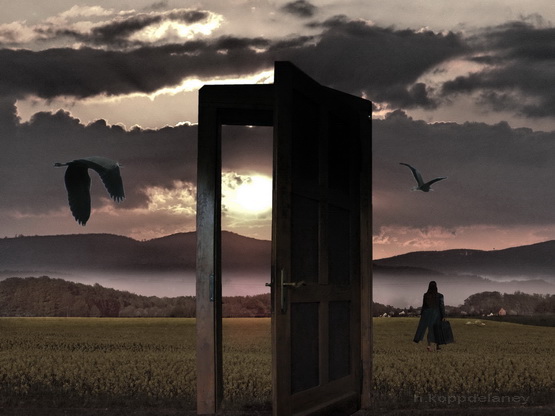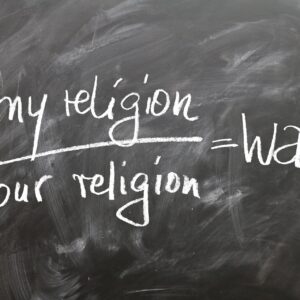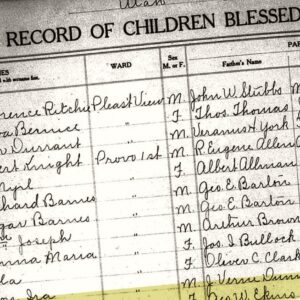 Written in January, 2012:
Written in January, 2012:
In December of 2011, my husband, Justin, and I respectfully resigned from our callings and stopped going to church. It’s been a long, tiring, enlightening process. I’ll start with the day that really got us going down this path.
It was a Sunday in May or June of 2011. I got ready for church and came downstairs, where Justin and our 3‑year-old were having breakfast, to find the TV on. I was immediately angry and so frustrated with Justin. We’d had conversations about trying harder to keep the Sabbath day holier, and as part of that, I didn’t think we should watch TV. Obviously he disagreed, but instead of saying so, he would give me the impression that we were on the same page about it — until Sunday rolled around, where he would blatantly disregard my wishes and be belligerent about it. It was probably the third Sunday in a row where we were fighting about it. We went to church, came home 3 hours later, and were still contentious with each other.
This scene is vivid in my head: we’re still in our church clothes; Justin in his white shirt and tie, leaning with his back against the counter, emotion in his face. Instead of continuing to fight about it, he finally explained why he was acting the way he was. He was struggling with multiple doctrines of the Church that didn’t seem right to him. And he felt guilty about struggling with them, and about sharing them with me at all, since it had the potential to make me have doubts as well. I tried to put him at ease about that, making sure he knew he didn’t have to deal with it alone, and certainly not to feel guilty about things not adding up to him. I knew that guilty doubting well, and I knew that thus far, it had been what kept me from ever doing the studying that I probably needed to do to get the rock-solid testimony I wanted.
Let me go back about a year. We were living in Wisconsin, and I had been thinking a bit more about polygamy — an issue that has always bugged me, but always ended up back on the shelf because I could never get anywhere with it. I’d get the same faith-promoting answers every time I brought it up. They didn’t satisfy me, but I was scared of facing my honest feelings about it.
Nothing about polygamy made me feel good. I remember being very hesitant to even speak to Justin about it — because doubts are so discouraged. (I can even remember, a few years earlier, my sister-in-law bringing it up in a setting where there were a lot of us around. My in-laws were there, and my ears perked up. I was surprised that she would talk so openly about her concern with it, and since she had, I was very interested in what my father-in-law would say about it — I considered him to be a very experienced, knowledgeable member. But as I recall, the answer was the same as always: we don’t understand it — just trust that it will be known to us someday.) It never helped that when I read the Book of Mormon or the D&C, I was constantly thinking things like: why, when the slow, meticulous process of engraving words on metal plates was the only way of preserving history, was the record so repetitive and superfluous? And how it always kind of seemed to me, if I was being honest with myself, that Joseph was using the guise of prophet to build himself up to a position of authority and power over all these people being addressed. And how when revelations didn’t work out the way they were supposed to, there was always a convenient reason for that, like someone wasn’t being faithful enough — even if the revelation placed blame on Joseph himself. I just saw it all as so sneaky. But! It’s wrong to doubt. “Doubt and faith can’t exist together.” So don’t doubt. I was just being too cynical, too analytic, being too serious and giving it too much thought. For the record, Justin wasn’t the one telling me that. He was always great about trying to help answer my questions. There were always answers that made me able to put polygamy (and my various other doubts) on a shelf and carry on.
It was also during our time in Wisconsin that I heard someone give a talk in church that really took a weight off my shoulders. I’ll get to that in a minute.
In 2005, I was 19. I “reactivated” (my parents divorced when I was young, but we had at one time been a fully active Mormon family. Some of us stayed active, some fell away and reactivated later) in the Church for social reasons – with only a handful of memories of church attendance. I remember telling my active Mormon brother — another person I’ve always considered very intelligent and strong in the LDS faith — something along the lines of it not feeling honest to go back to church just to find cleaner-living friends. He assured me that there are plenty of people in the Church who have social testimonies — but that the aim is that you work to have a real testimony. So I started going. It was at the end of my freshman year in college. After the semester ended, I was back in my hometown to work for the summer — but staying with a friend of my mother’s, since my parents had moved away. I had handled my old friends very poorly (I just cut our friendship off cold turkey, on the advice of that same older brother) so I had very few friends left after becoming active. I was so, so lonely. I was ready to scrap the whole thing and go back to my “old life.”
And then I met Justin. Oh, my dreamy Justin. Son of our former bishop, who my family revered. He was an upstanding, though maybe casual, LDS guy — not to mention extremely attractive — and it did not take me long to fall head over heels for him (I’m still head over heels for him.) Suddenly I had a reason again to stick around, to do this Mormon thing. So I did. I worked at it, I followed the rules, I learned the culture, tried to learn the current teachings, tried to catch up for all my years of inactivity. While I never came to have a solid testimony, I had committed to it, and I would be obedient. And I assumed that all of the people I loved and respected who had testimonies weren’t wrong — that I would be able to have that same testimony if I tried hard enough.
Justin and I got engaged and were married in the temple 7 months after we met. Never having gained a solid testimony, I lived with a measure of guilt at having gone through the temple at all. I felt like, without that certain testimony, I hadn’t been completely honest in answering the temple interview questions. I tried not to feel too terrible about it, because even without the testimony, I was good about living the standards and being obedient. I wore my garments. I obeyed the Word of Wisdom. We paid a full tithe on our gross income. So on and so on. Still, I always had this feeling that when I entered the temple, I was a bit of an impostor because I couldn’t say that I knew without a doubt that the Church was true; that Joseph Smith was a prophet; that I believed in and sustained the leadership today as prophets, seers, and revelators; etc. What I could say was that I didn’t not believe. I just wasn’t sure. And I felt like you ought to be sure if you were going to say “yes” to those questions. Anyway, a guy gave a talk in Wisconsin about how everyone’s testimonies are on different levels, and though you should be constantly striving to strengthen them, it’s okay if you’re not 100% sure. Phwew! So I was alright. Carry on. Keep praying for a testimony, read the scriptures, work at it, and someday, I would know for sure.
I give you all that information so you can understand where I was at with the Church. I wanted to believe in it (the man I loved believed, my family believed, many people that I had a lot of respect for believed (and if all those people believe, it has to be true, right?) — and it was the only place I knew of that held the same standards I did on certain things at that point in my life), I had committed to it, and I would strive to be a good, reliable, obedient, knowledgeable member. I wasn’t great about daily scripture study. Every once in a while I’d do it for about a week. Sometimes I read the Relief Society lesson ahead of time. We were always great about nightly family and individual prayer if not the other prayers in the day. I wasn’t perfect at all of it, but I was always keenly aware of the things I ought to have been doing. So that’s where I was at: I was committed, and I was trying to be better and better.
So, back to 2011, when Justin laid out his doubts and concerns. I knew what he was feeling — the guilt of having doubts and the possibility of spreading seeds of doubt by speaking about them — so I tried to remove that burden of guilt by telling him: It’s fine. Do what you have to do. For better or worse, he had a green light and he went about trying to learn more and make sense of things, and, specifically, to gain a testimony of Joseph Smith. He checked out Joseph Smith: Rough Stone Rolling, by Richard Lyman Bushman, a practicing Mormon, history professor, and Harvard graduate. He started doing some reading online. More books. All kinds of historical facts came to light that had never been told to us before. After a few weeks, I stopped waiting for Justin to get his issues resolved (as more issues reared their ugly heads) and I joined the trek. I don’t want to speak too much for Justin, but I know that through this stage I continuously thought things like: “Satan is out to deceive us. Satan would have us think that these things weren’t of God. Satan doesn’t want us to believe. There’s an explanation for a, b, and c.” And hell, Bushman himself was still a believing, practicing member, so what was wrong with us for being shaken by it?
But everything was also speaking to that other side of me, the side that wondered if all this “Satan tries to lead you astray” was a mind game. I had always suspected that there were more psychological and emotional factors at play than actual truth.
And so I got to a spot where I had to just stop, try to shirk off the Church’s indoctrination, and feel things out for myself, by myself, with what felt right and true to me. That in itself was a hard place to come to, because I think as a member, you get the sense that you aren’t to trust your own thoughts and feelings. Just hold firm to the iron rod that is the Book of Mormon and the brethren’s teachings, and you’ll be fine. Don’t worry about anything else. But slowly, I took hesitant steps backward, to look at this whole thing objectively, to consider it from an outsider’s point of view.
It’s been quite the ride, and has really made me appreciate that seemingly juvenile cliché, “Be true to yourself.” For both of us, but especially Justin, who had always had a decently solid testimony, it has been and continues to be a very emotional, confusing, difficult process. Starting in early-to-mid 2011 and lasting until now, it has been an extremely exhausting “journey.”
Written in October, 2012 — 10 months after leaving:
I stopped writing this in January and never shared it because it was all still so overwhelming — all of it was so fresh and still churning. I still had a lot of emotions about it, and my hackles were still up. I didn’t know what all to address. I wanted to defend myself, but also be respectful of various audiences. I wasn’t sure who my audience would be. I was scared of and sensitive about various family members’ and some old friends’ reactions.
The “journey” continued. In January, we still had not “come out” to our families entirely. I told my family in March. Justin told his family in August. We’ve had some rough conversations with family members and I’ve had conversations with at least 2 friends about our disbelief. One remains my friend, the other doesn’t seem very interested anymore.
After you leave the Church, there are still months of fall-out. What all do I believe; what do I not believe? What are my standards and values? And because I’m married, these were questions that we worked through together. What kind of people do we want to spend time with? How much of the Church’s culture do we want to cling to? How do we negotiate our friendships with members, and more importantly, our relationships with family who are members? Unfortunately, those were the hardest and most painful lessons to learn. Mostly because we caused pain in the way we’ve dealt with the situation, but also because they’re completely new at all this, too, so some of them haven’t handled it well, either. Some of those wounds are still open for me, and I think for Justin, as well. Surely for them, because it seems that they will never understand us and our decision — so it continues to hurt them. I think time will put that stuff behind us. And a bit of experience will, hopefully, help us to handle those discussions and relationships better in the future.
I realize now how little I know, and that’s what makes others much more valuable to me. There are few things I take a solid stance on now, and when I do, I still try to remember that just because that’s how I feel about it, doesn’t mean I’m right. And I’m genuinely interested in other peoples’ points of view, their experiences, their opinions on things. Because I realize that there is no one right way, and I can learn from everyone around me. I’m still an introvert, but I love people more than I ever have before.
We’re still crossing some foreign ground — still dealing with some issues that never would have risen had we stayed active in the Church. Some of it has been hard. I try to be patient, and thank goodness, Justin is very forgiving of me. Though difficult at times, it’s totally worth it. We’re running our show now — our life is more authentic.
When I was 19, I needed the relief of the Church answering all my questions. As a few years passed, I began to realize that I didn’t necessarily agree with all their answers. I can’t begin to explain the relief of not having to fall in line; of not having to be obedient to a bunch of men (and a few women) I’ve never actually met. Or to try to believe in two divine men that I personally could never connect with.
Many of our friends from the places we lived in the past still don’t know that we’re not active. I’m sure it will trickle out slowly. Sometimes I’m tempted to make a public (Facebook or blog entry) announcement. I don’t like that anyone would apply the usual apostate stereotypes to us and I start feeling like I want to set the record straight. It’s both humorous and frustrating to me to think that most of our ward likely thinks we’re just lazy — while they charge ahead in the faith, completely unaware of the many ethical and historical issues with the Church they devote themselves to. Even those we’ve explained ourselves to (likely) just pity us and think we’ve been deceived. That’s hard to think about, too. But it is what it is. And we’ve been out long enough and moved on just enough that now, I don’t want to give it the kind of weight that a public announcement would hold. A year ago, this was all so huge. Now I just kind of think: “Huh? Oh, yeah. We’re not Mormon anymore. That’s old news.”
It’s not entirely old news. We are still being chiseled at by some loved ones – sometimes a text or an email from them can set us off for a day or two, reviving all the anger and frustration. I’ve begun to distance myself from the sources of conflict – meaning I’ve left certain online groups and limited my exposure and participation in discussions. I’m tired of the negativity and I’m more and more ready to move on.
Justin’s not quite ready to have his name removed. I would do it in a heartbeat, but I want us to be unified in it. I’m very much looking forward to being unattached from The Church of Jesus Christ of Latter-day Saints. I’m eager to “put my money where my mouth is.” I’ve come a long way in this process and I think I’m in a pretty healthy place with it, but I’ll be grateful for that closure.



Leave a Reply